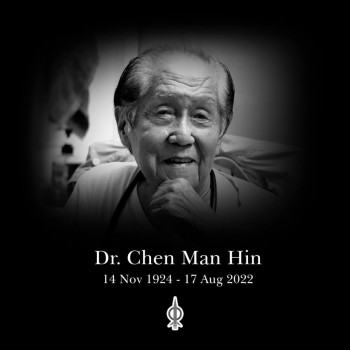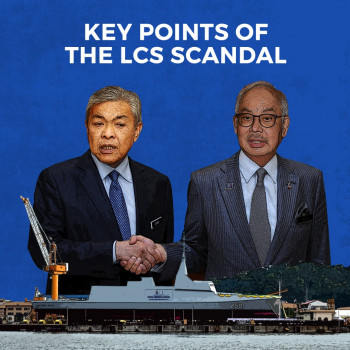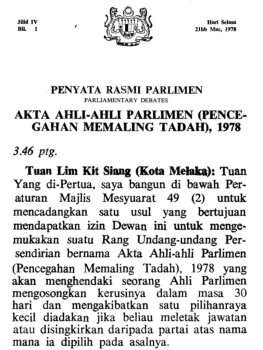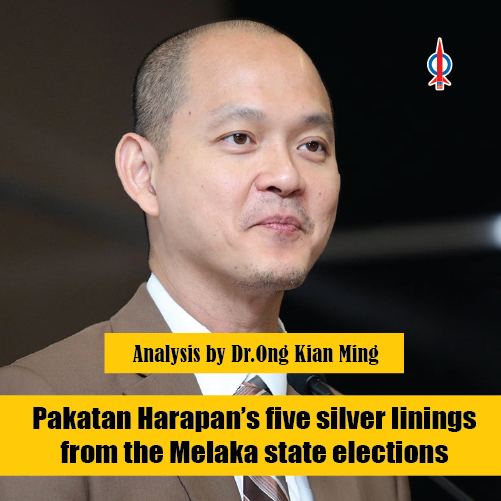
The recent Melaka state election results, where the Barisan Nasional (BN) won 21 out of 28 state seats (75%), were a disappointing outcome to many Pakatan Harapan (PH) supporters and even some neutral observers who does not want to see a return of a dominant BN / UMNO in the Malaysian political landscape. The outcome was not exactly unexpected given the unique circumstances of this state elections – the circumstances surrounding the sudden collapse of the state government, the low turnout rate, the inability to hold ceramahs, the low public interest in the campaign, fears surrounding the Covid-19 pandemic.
But there are some silver linings for Pakatan Harapan (PH) which can be used as lessons to build the momentum for the more important electoral battle which is the 15th General Election.
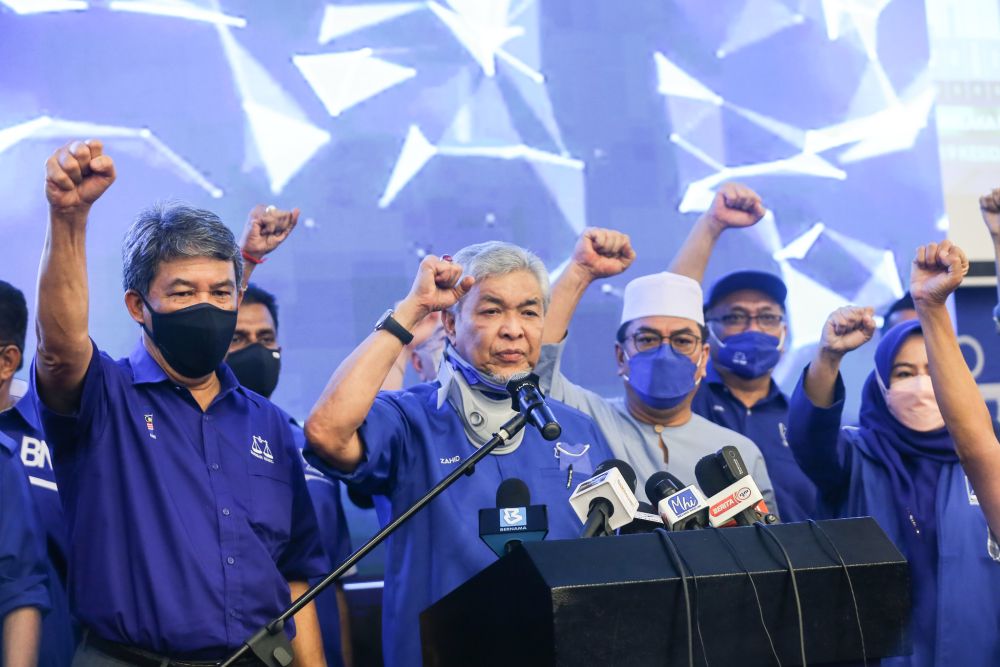
Firstly, the return of BN / UMNO’s electoral dominance is widely exaggerated. While BN may have won 21 out of 28 state seats, its vote share barely changed. Most of the initial analysis showed that BN’s vote share only increased marginally, by 1% at most. One analysis by Malaysiakini showed that BN’s vote share increased by only 0.6%, from 37.8% to 38.4%.[1]
The First-Past-The-Post (FPTP) electoral system gave the BN an electoral advantage, especially in the smaller more rural constituencies but the BN’s vote share of less than 40% means that with a larger turnout and more younger voters in the context of a national campaign, relatively small shifts in its support could lead to the BN losing many seats in a general election.
Secondly, Perikatan Nasional (PN) poses a real and credible threat to the BN. While PN only won 2 state seats, it garnered almost 25% of total votes, up from the 10.7% which PAS won by itself in the 14th general election in 2018. This means that the PN has some hope of gaining further electoral ground against BN / UMNO in the next general election. More importantly, this will prevent the internal narrative from within PAS to abandon PN and to work with BN / UMNO from gaining more momentum, which surely would have happened if PN failed to win any seats and managed only to win less than 20% of the popular vote.
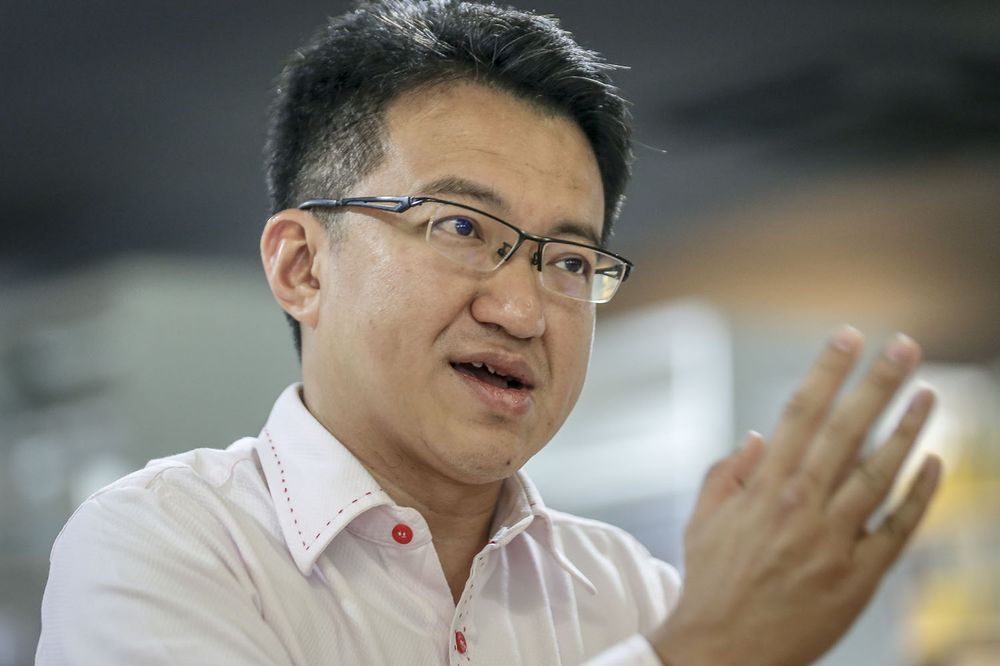
My colleague, Liew Chin Tong, used the “Rise of the Three Kingdoms” narrative to describe the state of the political landscape in Malaysia post Melaka state elections.[2] This political configuration will likely remain until the next general election which means that any coalition, including Pakatan Harapan, can spring electoral surprises amidst a divided electorate.
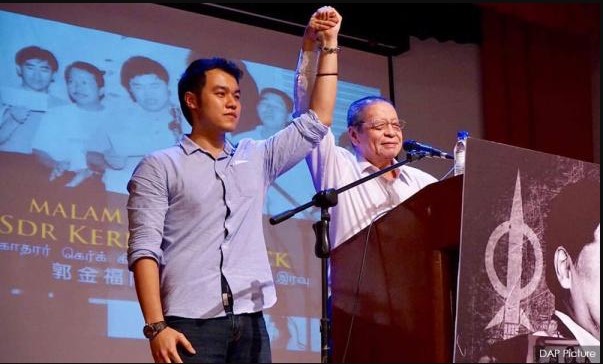
Thirdly, there were some bright spots for some of the DAP and PH candidates. In the Ayer Keroh state seat, DAP’s Kerk Chee Yee, who will turn 30 only next year, managed to win 60% (down by 4.8% from GE14) of the popular vote in a mixed seat which is 40% Malay.
In the Kesidang state seat, DAP’s Allex Seah Shoo Chin, managed to win 66% of the vote (down by 5.9%) in a mixed seat which is 37% Malay. Both DAP candidates would not have been able to retain their seats without retaining some of the Malay support which PH had gained in GE14 especially when one considers that the vote share for PH in Melaka dropped by 15% from GE14 to the 2021 state elections.
In addition, DAP’s youngest candidate, Mohd Danish bin Zainuddin, who contested in the 65% Malay seat of Pengkalan Batu, came within 1% of winning the seat. This is a credible showing for a first time candidate contesting in a difficult seat which also featured a former DAP Malay exco member who had left the party as part of the Sheraton Move.
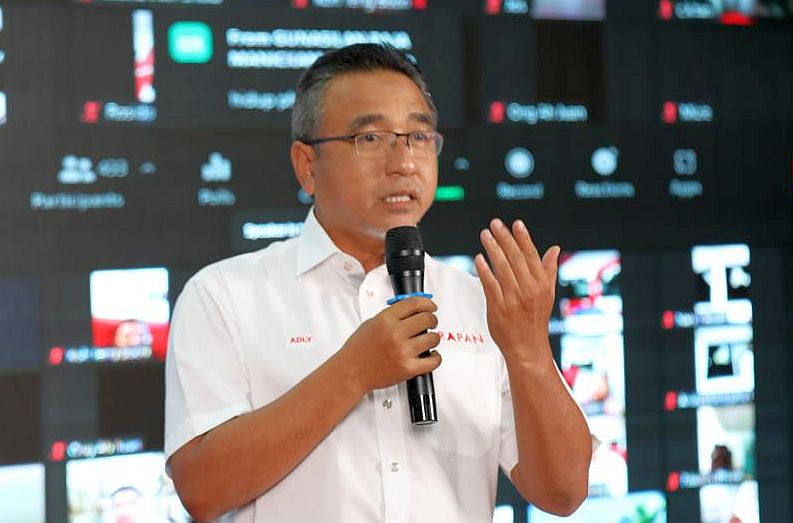
The former Chief Minister from AMANAH, Adly Zahari, also managed to retain his state seat of Bukit Katil and remains a popular political figure in the state. He will likely be named as the leader of the opposition and can make us of this platform to increase his political standing, not just within Melaka but also nationally.
Fourthly, the Melaka state election results is a good wake up call for Pakatan Harapan and provides an opportunity for some soul searching and reflection. The decision to take in two political “frogs” from UMNO did not yield any political dividends for Pakatan Harapan – the former UMNO Chief Minister managed to win only 27% of the vote in the state seat of Asahan – and in fact, probably discouraged some of PH’s supporters from coming out to vote or perhaps even to switch their votes. The lack of a compelling narrative, especially in terms of a future vision for the state government, is also requires attention. The need for a strong ground game in terms of party machinery, especially in the sermi-urban and rural seats, also needs to be addressed. We cannot depend on machinery from other states to cover some of the weaknesses of the local machinery during a general election.
Fifthly and most importantly, the Melaka state election results gives Pakatan Harapan (PH) some time – we are not quite sure how much time – to come up with a new and more compelling narrative for the 15th General Election. We do not have GST and 1MDB to use as campaign material against the BN. While many voters are not satisfied the handling of the COVID19 crisis by the Muhyiddin government, the anger towards the same cabinet members led by the current Prime Minister, Ismail Sabri, may have been reduced, especially with the reopening of the economy.
What PH needs is a new narrative for GE15 that has the following elements: (i) Presenting a line-up of experienced and young leaders to lead the country forward rather than just relying on just the top leaders of the individual component parties (ii) Presenting a compelling vision for the country post COVID19 at the national and state levels that focuses on competency and capability (iii) Presenting a configuration for new alliances including with MUDA to attract younger voters and also younger volunteers and members to be part of our machinery on the ground and in social media.
There is still time, but this time needs to be spent well. Personal agendas need to be put aside in the interest of a larger and more compelling strategy and political narrative moving forward.
Dr. Ong Kian Ming
MP for Bangi

